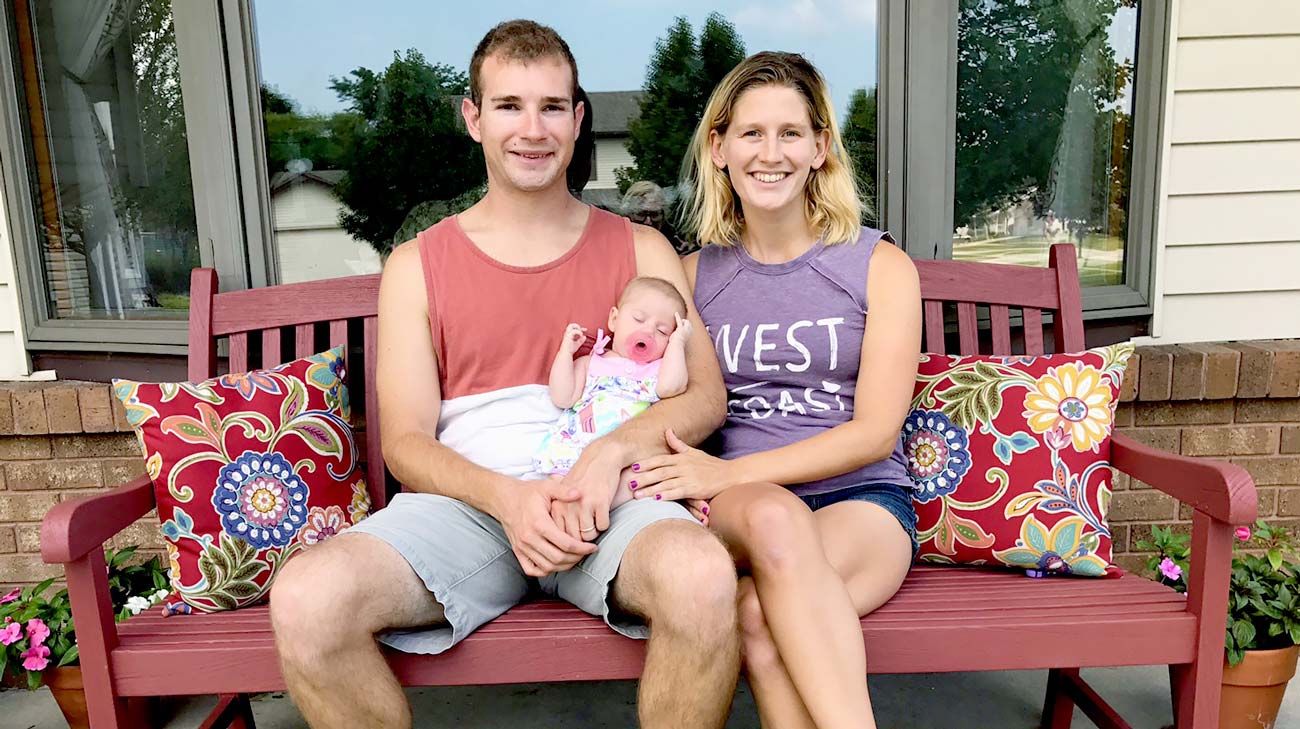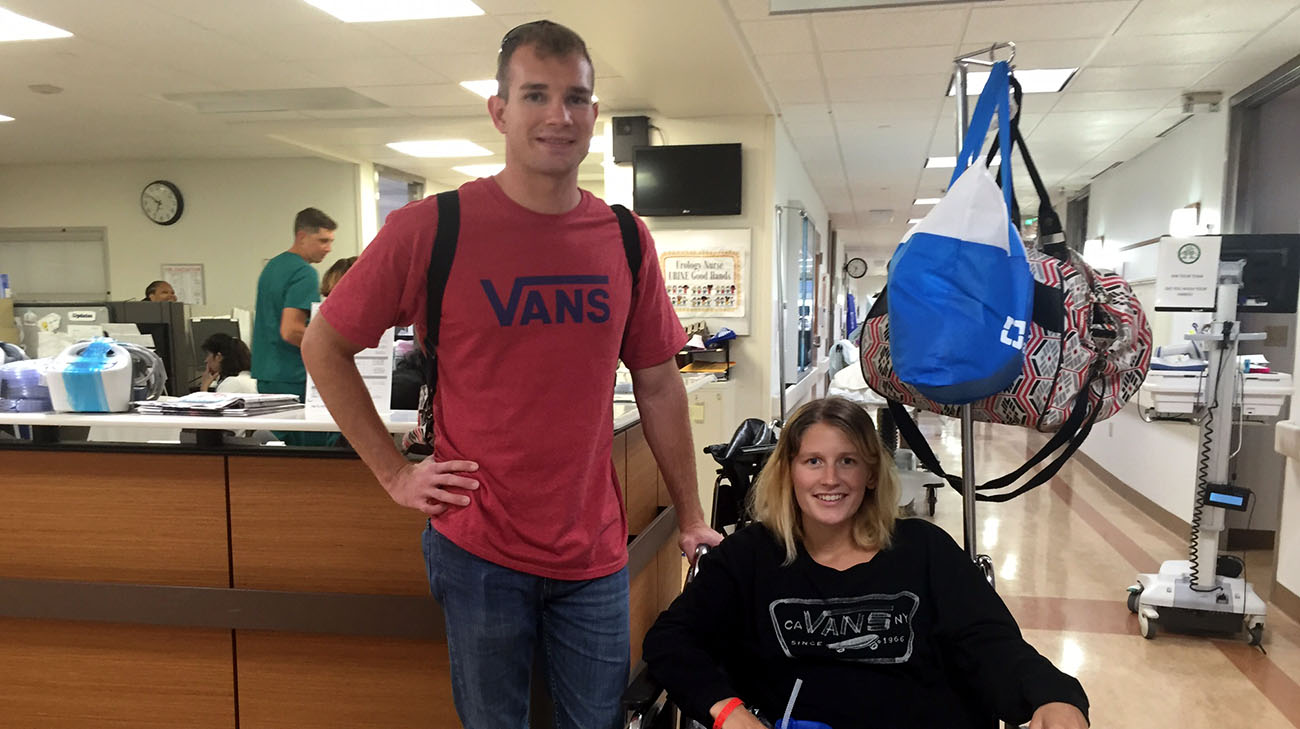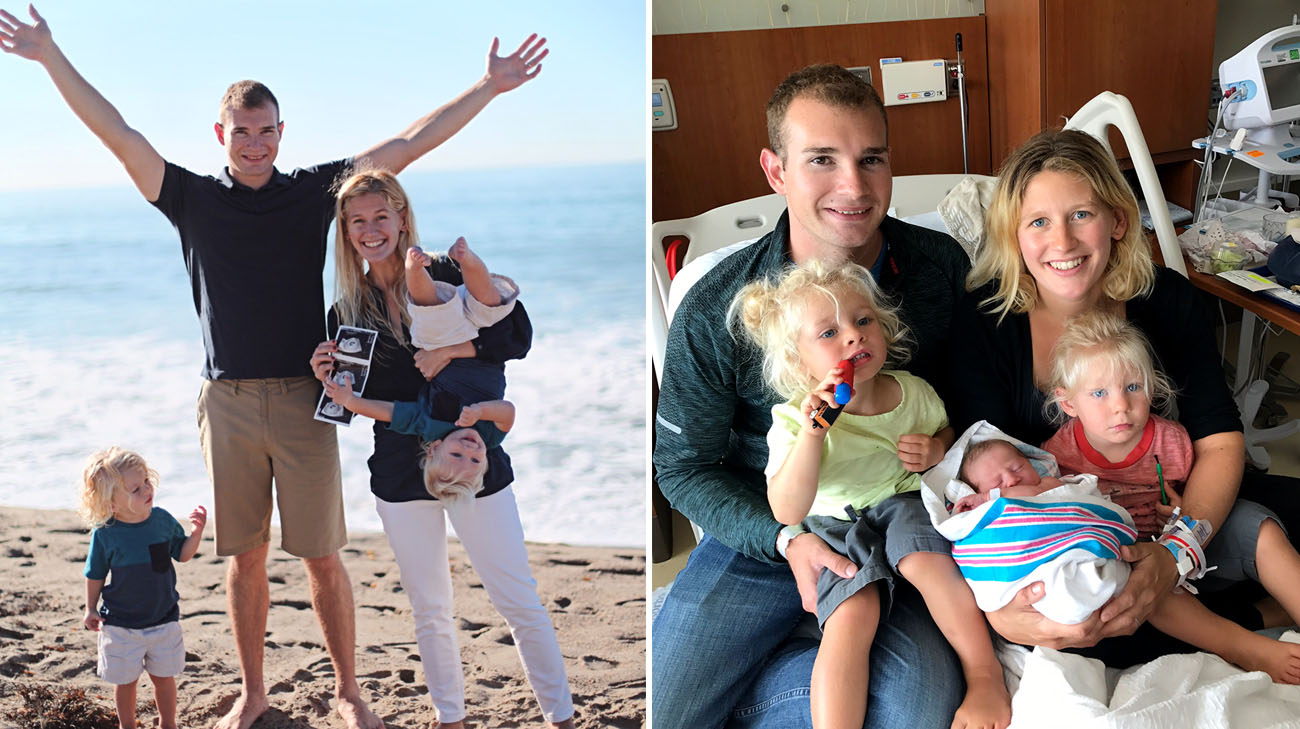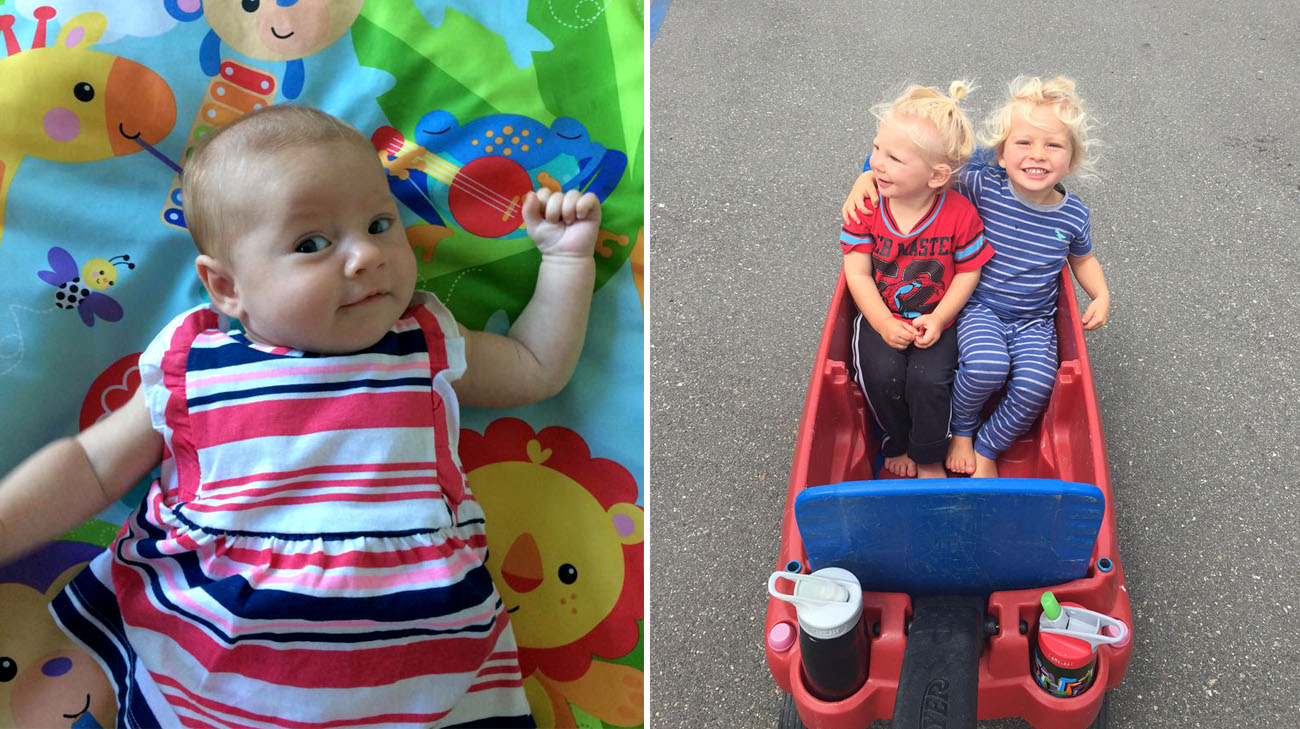
Twenty-two weeks into her third pregnancy, Jessica Dykstra experienced incredible joy and intense fear --- in just a few minutes. Jessica learned she was having a baby girl to complement her two toddler boys.
And just minutes before, the 25-year-old San Diego resident was diagnosed with stage 2 renal cell carcinoma — a malignant tumor on her left kidney.
“I was in disbelief,” recalls Jessica. “Here I was about to find out if I was having a boy or a girl, and instead I’m learning I have cancer.”
Her local doctors recommended she undergo a radical nephrectomy, an operation that removes both the cancer and the kidney – and that can safely be performed during the second trimester of pregnancy. But Jessica was leery of how the procedure could affect her unborn child, so she explored other options online.
That led her to Cleveland Clinic and a consultation with Dr. Georges-Pascal Haber, a urologist in the Glickman Urological & Kidney Institute who had helped pioneer a new surgical technique for treating kidney cancer: robotic partial nephrectomy, which removes the cancerous tumor but preserves most of the kidney.

Jessica traveled to Cleveland Clinic 6 weeks after giving birth for a procedure to remove a cancerous tumor. (Courtesy: Jessica Dykstra)
Dr. Haber quickly assembled a tumor board, a cross-disciplinary team of Cleveland Clinic physicians and experts in radiology, ethics, psychiatry and other fields who debated how to proceed. Ultimately, they recommended that waiting until the baby was born would be the best choice, for both Jessica and her child.
“It was a very hard decision. We needed to take into account the health of the mom and the baby,” explains Dr. Haber, who also suggested that a birth by caesarean section would reduce the risk of the tumor bleeding during delivery.
Jessica agreed to wait. But a few weeks before her delivery date, Jessica began experiencing strong contractions. Before they could leave for the hospital, she felt the urge to push – and Hope Daisy Dykstra was born in the living room of her home.

The Dykstra family welcomed their third child in June 2017. (Courtesy: Jessica Dykstra)
“After going through a roller coaster of a pregnancy, it only made sense to name her Hope,” says Jessica of her healthy baby girl.
Six weeks later, Jessica made the cross-country journey to Cleveland Clinic, where Dr. Haber performed robotic partial nephrectomy to remove the tumor, which had only grown slightly since the diagnosis. After making small incisions in Jessica’s abdomen to insert robotic surgical equipment and a camera, Dr. Haber guided the robotic instruments through the procedure.
Just two hours later, all cancerous growth was removed – and 70 percent of her kidney was retained. No chemotherapy or radiation was needed, Jessica’s kidney is functioning normally, and Dr. Haber notes that her prognosis is excellent.

Jessica and Nate are happily raising their three children. (Courtesy: Jessica Dykstra)
Jessica and her husband are back home, happily raising three healthy children. Her advice for other patients facing a difficult decision is to diligently seek out other expert opinions.
“Do the research and go with your gut instinct. Take a step back, don’t rush decisions. And don’t ever give up hope,” says the mother of Hope.
Related Institutes: Glickman Urological & Kidney Institute, Ob/Gyn & Women's Health Institute, Cleveland Clinic Cancer Center

